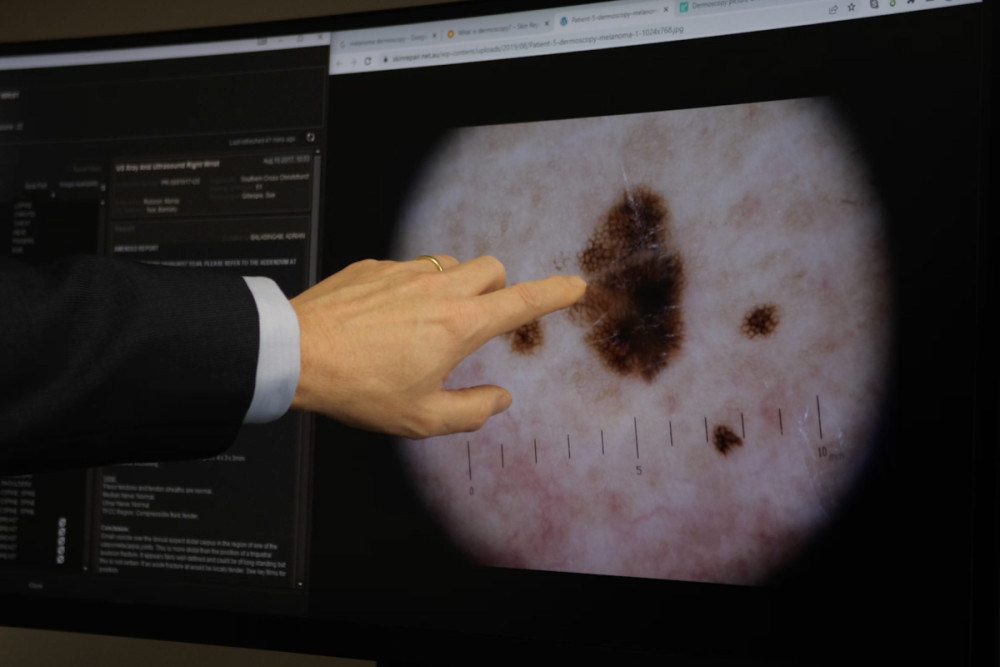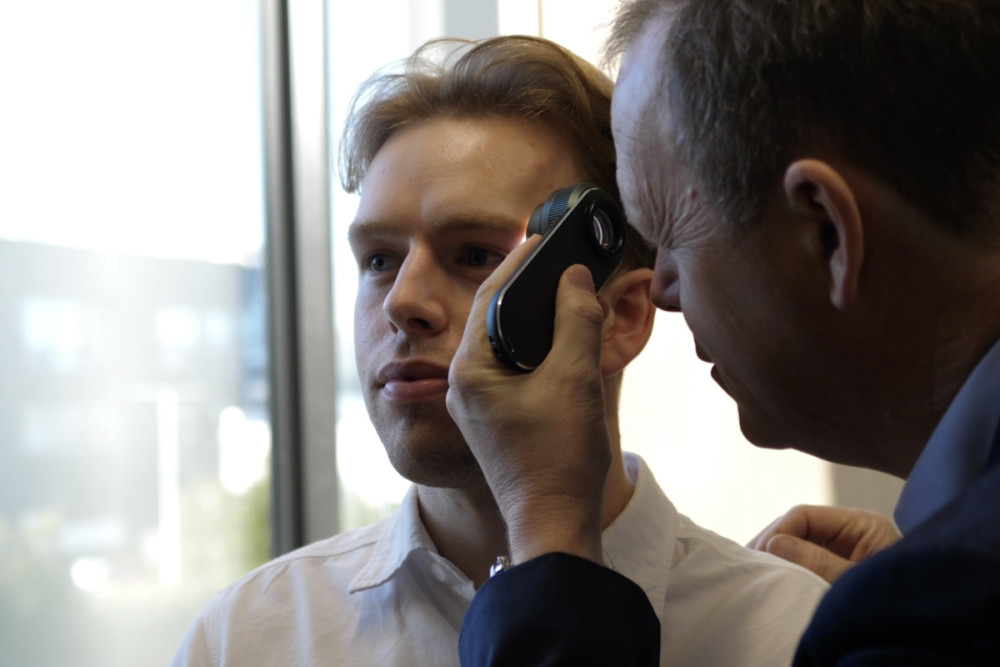BCC and SCC
The skin cancer we see most frequently is basal cell carcinomas, typically occurring on sun-exposed skin on the face, neck, shoulders, back and legs. Experienced surgeons can recognise these as a small, pearly nodule, or a bleeding ulcer. Distinguishing features can usually be identified with a dermoscope (a small handheld microscope) but occasionally a small sample, called a biopsy, is needed to confirm the diagnosis before treatment.
Their growth is almost always limited to the original location and the affected area is usually clearly visible, meaning surgical removal is usually all that is
necessary. Some superficial BCCs can be treated with a topical cream and don’t need surgery. Advanced BCCs can require complex reconstruction and occasionally radiotherapy to reduce the risk of recurrence in the area.
In comparison, squamous cell carcinomas are far more aggressive and most often result from too much time in the sun. They have the ability to spread elsewhere in your body, most commonly to your neck or groin. The risk of the cancer spreading is greater if the cancer is larger, rapidly changing. or has been growing untreated, for a long period of time.
Treatment involves surgery to remove the cancer and close monitoring of key local areas, such as your lymph nodes. Surgery is usually all that is required, but sometimes additional radiotherapy may be needed.




